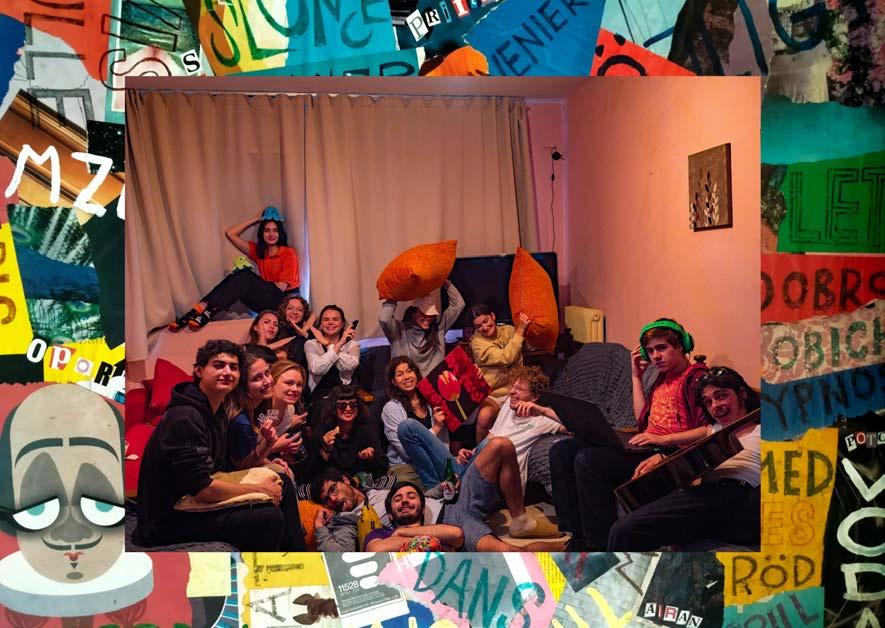Balkan Beats
A BIMONTHLY MAGAZINE BY THE VOLUNTEERS OF THE UNITED SOCIETIES OF BALKANS


A BIMONTHLY MAGAZINE BY THE VOLUNTEERS OF THE UNITED SOCIETIES OF BALKANS

By engaging in volunteer projects, individuals are exposed to different cultures, traditions, and perspectives, which challenge stereotypes and cultivate mutual respect. In this edition of Balkan Beats we try to present this powerful tool that allows people to break down cultural barriers, to foster empathy, and to promote dialogue among diverse communities.
Volunteering is a profound act of selfishness that not only benefits individuals and communities but also fosters personal growth and societal progress. In this edition, we explore the transformative power of volunteering, delving into non-formal education, navigating the volunteering landscape, fostering intercultural understanding, and embracing inclusivity through LGBTQ volunteering.
As we explore a world that constantly presents new challenges and opportunities, traditional education systems alone may not equip us with all the skills and knowledge we need to thrive. Non-formal education, a key aspect of volunteering, offers an alternative avenue for learning and personal development bridging the gap between theoretical knowledge and real-world application.
Finding the right volunteering project can sometimes feel overwhelming, given the vast array of opportunities available today. However, with proper guidance and resources, individuals can navigate the volunteering landscape to find the perfect fit. We provide practical tips and insights to help prospective volunteers identify their passions, align their interests with impactful projects, and make a difference in a way that resonates with their skills and values.
Inclusivity lies at the heart of volunteering, and it is essential to recognize and address the unique challenges faced by marginalized communities, such as the LGBT community. By embracing inclusivity and empowering communities, volunteers contribute to creating a society where everyone can live authentically and participate fully.
Volunteering transcends borders, age, gender, and identity, bringing together individuals from diverse backgrounds to create a collective force for good. It is a powerful catalyst for personal growth, soc ietal change, and the betterment of our world. We celebrate the transformative power of volunteering and delve into the various facets that make it an enriching and rewarding experience.
Balkan Hotspot is the ESC (European Solidarity Corps) project of “United Societies of Balkans”, a NGO founded in Thessaloniki in 2008 by a team of active young people.
The Balkans and Eastern Europe are geographical regions with many cultural features which offer a broad spectrum of actions and youth involvement initiatives. The organization was created as a response to the pressure of constant
www.balkanhotspot.org
changes in the Balkan and Eastern European region and under the need for the creation of a better social environment.
Key areas of the organization’s activities concern the defense of human rights, the organization of youth exchanges and training courses, which will bring young people from Balkans and Europe together, the organization of local educational seminars and multimedia production.
United Societies of Balkans is a Non Governmental Organization, founded in Thessaloniki in 2008, by a team of active young people. The organization was created as a response to the pressure of constant changes in the Balkan and Eastern European region and under the need for the creation of a better social environment. Key areas of the organization’s activities concern the defense of human rights, the organization of youth exchanges and training courses, which will bring young people from Balkans and Europe together, the organization of local educational seminars and multimedia production (webradio, videos, documentaries).
Main goals of the organization
• To promote the values of non formal le- aring,volunteering, active citizenship and democracy for the creation of a better future for European youth.
• To promote human rights, solidarity and respect for diversity.
• To build healthy cooperation bridges between countries of the Balkan area and that of Eastern Europe with the rest of Europe.
• To locate and multiply the special cultural attributes of our societies.
• The break down of prejudices and stereo- types between Balkan countries.
The United Societies of Balkans, NGO, does not necessarily share the opinions expressed in Balkan Beats. It is illegal to reproduce any part of this publication without referring to the source.
In a world that is every day more and more interconnected and dependent, collaborative methodology has become a powerful tool for addressing challenges, and achieving successful outcomes. But what exactly is collaborative methodology and how does it work? In this article, we will provide a simple and accessible explanation for those who have never participated in or have never heard of this way of teamwork.
What is collaborative methodology?

Collaborative methodology is an approach to work, in which people come together to achieve a common goal. Instead of working in solitary, participants collaborate, share ideas, knowledge and skills, and make decisions together. This approach is based on the idea that col -
lective intelligence is more powerful than individual skills and that by joining forces we can achieve more meaningful and effective results.
W here does this trend come from? Problem-based learning is a didactic strategy in which students, organized in groups, study problems taken from real situations, with the aim of integrating knowledge and developing high-level intellectual skills. It originated in the 1960s to promote multidisciplinary and active learning of medical students, but it is currently used in multiple learning contexts, which have found that its use contributes to obtaining significant learning results and promotes autonomous learning (Latasa, 2012). And now is the main methodology for Erasmus + projects.
What are the differences between a trainer and a facilitator?
A trainer is a professional who designs specific training actions according to a training plan; implements them, delivers the training contents and advises and tutoring, both individually and in groups, the participants. This is common in formal education or in private academics.
The trainer evaluates both, the process and the results of such training action, impregnat-
ing his/her work with an approach aimed at improving the quality of training for the participants; and finally evaluates the process and the results of this training action, imbuing their work with an approach aimed at improving the quality of training.
A facilitator plans, guides and manages a group event to meet its goals. To facilitate effectively, you must be objective and focus on the “group process.” That is, the ways that groups work together to perform tasks, make decisions and solve problems. It is for this reason that the facilitator will have to adapt each program to the group that is going to carry out the project, it is not worth universal planning to be used year after year.
Participatory methodologies use a range of techniques to facilitate the process of learning and sharing. As such, the people leading or being part of the project are seen as facilitators rather than experts.
When people first engage in a participatory learning process, facilitators use a variety of techniques to:
• Help people feel comfortable to talk about local issues.
• Encourage people to share information, ideas, concerns and knowledge.
• Support group learning.
• Help people to communicate effectively.
• Lead group dynamics.
• Ensure that the work is practical and relevant.
• Invite the group to take control of the learning and sharing process.
Through observation, listening and asking relevant questions, facilitators demonstrate that each person’s contribution is important, helping group members to develop communication skills and promote the growth of their ideas.
This methodology has one main element which is the motivation of the participants, as in the non formal education, because they choose to be part of it. Through the participatory methodology they feel involved in the full process of the project, so they can see it as part of them. But before talking about motivation, let’s see what is this and from where it comes.
Attention is the mental capacity to focus on one or more aspects of reality and ignore the others. Attention involves an active focus of the mind, exclusively and for a specific period of time, with the aim of understanding something, knowing it and recording the data obtained in the memory.
Concentration is the ability to fix one’s attention on a single object, idea or activity, selectively, without allowing extraneous elements to enter one’s thoughts. Without attention and concentration it is not possible to store information (memory) and therefore learning.
Distraction is the constant fluctuation of attention from one stimulus to another without remaining fixed on any of them.
Motivation: is the energy that keeps individuals to stay focused, concentrate on tasks, and effectively manage or ignore distractions in order to achieve their goals.

The participatory methodology is mainly based on encouraging, through a wide variety of procedures and systems, interpersonal communication, as well as giving the student a leading
role and participation, motivating him/her to exchange, reflect, share, resolve, etc.
Apart from this, the human-social factor of education has, as its fundamental basis, the phenomenon of interaction and the interpersonal communication that this produces.
Education is a practice with very clear objectives, with a multitude of dimensions but, above all, it is a communicative process. The foundation of education is the phenomenon known as educational communication, and the learner in the classroom, with all the exchange of communication messages between one another.
“ Education that is not based on dialogue is generally the negation of education”.
Exploring the reasons why non-formal education Initiatives could represent a step forward in the context of formal education as well

Unesco defines formal education as one that is institutionalized, intentional and planned through public organizations. It is recognized by private bodies and, in their totality, makes up the formal education system of a country. On the contrary, informal education is a form of learning that is intentional or deliberate, however, it is not insti-
by Giusy Letiziatutionalized and it is not structured in terms of learning objectives, time or support.
O ver the past decade, non-formal education has become part of the discussion, positioning itself between the two. In fact, it refers to any organized learning activity that takes place outside the formal education system. It is a flexible and learner-centered approach to education
© Giusy Letizia“Education is a social process”
that aims to meet the specific learning needs and interests of individuals in a more informal setting. What exactly does this mean?
First of all, we can say that this approach is strictly connected to voluntary participation, since non-formal education programs are typically voluntary, allowing learners to engage depending on their personal interests and motivations.
Saying it is learner-centered means that it focuses mostly on the learner’s needs, aspirations, and prior knowledge. It aims to create an inclusive and interactive learning environment that encourages active participation and empowers learners to take ownership of their education.
Thanks to the adaptability of the approach, not being regulated by rigid curricula or standardized assessments, it can be described as a flexible structure which focuses on practical skills learning.
The teaching methods which are employed are less formal than traditional classroom instruction. These methods may include experiential learning, discussions, workshops, simulations, hands-on activities, mentoring, and peer learning.
In any case, the most important aspect of this is the inclusiveness that comes with it. Non-formal education addresses the learning needs of individuals who may not have access to formal education, as well as supplementing and complementing formal education systems by providing opportunities for lifelong learning, skill development, and personal enrichment.
Non-formal education can be integrated into various educational settings, volunteering projects, and youth organizations, providing diverse learning opportunities and fostering development among learners. However, it is true that in some fields this approach is applied more actively than in others. As is obvious from the very definition given to this type of activity, it is the more informal settings such as youth organizations and volunteer projects, which appear to be more open to this learning methodology.
Volunteering projects:
Volunteering projects often involve non-formal education components where volunteers engage in activities such as teaching basic literacy, providing health education, organizing workshops on life skills, or mentoring disadvantaged individuals or groups, as well as in projects that focus on environmental awareness, sustainable practices, and conservation efforts. These initiatives often include educational workshops, hands-on activities, and community outreach to promote environmental stewardship.
 © Giusy Letizia
© Giusy Letizia
Youth organizations:
These units frequently offer non-formal education programs to develop leadership skills and empower young people to become active and responsible citizens. These programs may include workshops on communication, teamwork, problem-solving, and decision-making.
These programs often facilitate cultural exchange, international understanding, and global awareness. These programs may involve language learning, intercultural workshops, volunteer projects abroad, or hosting international students.
Most of the time personal development is the key, focusing on topics such as self-confidence, stress management, career exploration, financial literacy, and mental health. through workshops that aim to support young people’s personal growth and equip them with essential life skills.
Schools:
It may be more difficult to encounter this type of approach from more institutionalized sources of learning like schools and universities and, when it happens, their importance is often put on the back burner.
However, sometimes schools offer non-formal education opportunities through clubs and activities such as sports, music, art, and debate. Also, field trips to museums, historical sites,
scientific centers, or nature reserves, are activities that allow students to explore their interests, develop skills, and learn in a more relaxed and interactive environment.
It is widely agreed that our educational system does not always provide all the knowledge needed to succeed in modern societies. But, personal and interpersonal skills are needed and are essential for the individual’s development and growth.
One way of acquiring soft skills is volunteering with associations and non-governmental organizations (NGOs). Learning through action was found to be the most important factor in the acquisition of soft skills. Many researchers and studies conclude that “non-professional” activities like volunteering should be actively incorporated into students’ learning process, making their experience of higher education more active, enjoyable and relevant.
While volunteers of youth organizations and NGOs can have a positive impact on local communities through non-formal education, it is crucial to address the challenges and ensure sustainability, cultural sensitivity, and social participation, for long-term effectiveness and success. It is important to work towards building local leadership and empowering community members to take ownership of education initiatives.


Finding a European Solidarity Corps project for volunteering can be overwhelming. There are endless opportunities, and finding the best project that fits you sometimes seems complicated. If you have no idea where to start looking for an individual volunteering project, the easiest way to go is to search for a sending/supporting organization in your town or city. These organizations are based in your home country and prepare you for your volunteering abroad, but they can also assist you to find opportunities in the first place, especially if you have special requirements that need to be considered.
by Stefanie Thallerproject takes place. These individual volunteering experiences can last from 2 months up to 12 months and all EU citizens between the ages of 18 and 30 can participate once. They are usually full-time positions (between 30 and 38 hours per week) in various fields of work, from education, entrepreneurship to environment and citizenship and participation.
If you are already pretty sure when you want to go volunteering abroad and where you can search for projects yourself. The European Union provides a database with all vacant positions of funded volunteering opportunities (over 1500 projects at the moment): the European Youth Portal. You can filter your search by country, type of activity, topic and the time period in which the

A nother possibility is team volunteering projects. Team volunteerings last between 2 weeks and 2 months with a group of volunteers between 10 and 40 participants. These are especially suitable for people who are unsure about the commitment to several months abroad. So, it’s a good place to start volunteering or team volunteerings can also be done after a longer project if you feel like you haven’t had enough yet. In these teams, volunteers will carry out tasks for a project over a short period of time (usually during holidays, breaks between study periods, and transition from education to work).
The above-mentioned possibilities are funded by the EU and therefore they follow rather strict guidelines. If you prefer to do your own thing and have more freedom in organising, then workaway could be something for you. Workaway is a platform that enables members to arrange host families and cultural exchanges. Volunteers or “workawayers” are expected to contribute a pre-arranged amount of time per day in exchange for accommodation and meals provided by their host. Workaway is aimed at
budget-conscious travellers and language students who want to immerse themselves more deeply in the country and culture they are visiting. At the same time, the hosts meet like-minded local people who can provide the help they need. Workaway is an online network for volunteers and hosts, almost comparable to Airbnb or LinkedIn. Hosts post their offers on the website and travellers contact them. With workaway there is less paperwork, but also less security.

A part from volunteering projects, there are many other opportunities for self-improvement and continuing education. The European Training Courses have to offer many training activities in the field of youth and non-formal education throughout Europe. Their aim is for participants to develop skills to further work with young people, exchange experiences and make contacts for joint future projects. All courses are non-profit and can be found on the SALTO platform. This acronym stands for Support, Advanced Learning and Training Opportunities for Youth.
© www.salto-youth.net

The projects presented in this article focus on Europe and partner countries. Unique projects exist all over the world. The choice of volunteering projects is almost endless. There are many great options to get involved. But of course, there are also scammers who do not have good intentions. So, no matter what you apply for, do your research thoroughly!

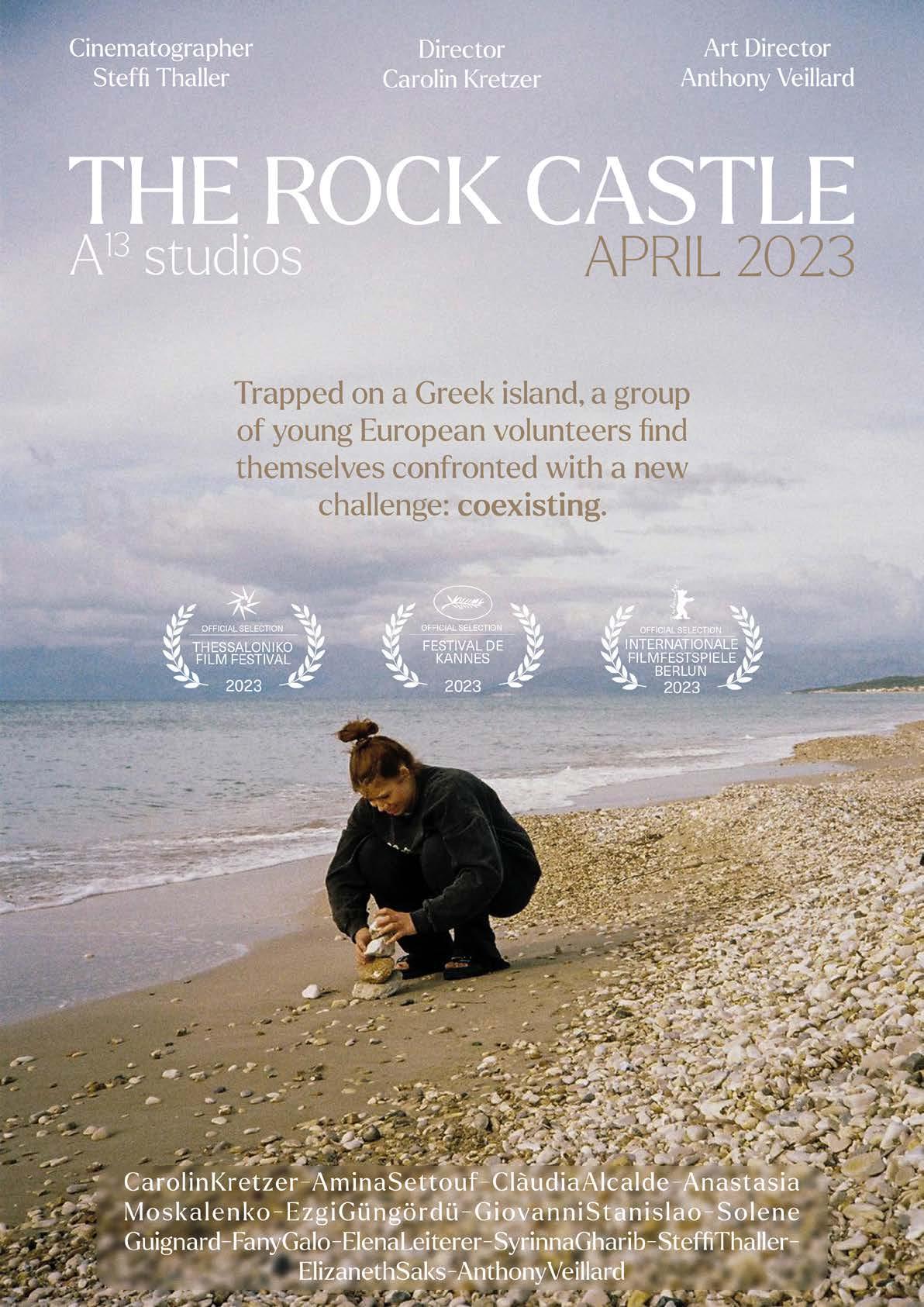
When you decided to be a volunteer, whether it was for a change of scenery after graduation, for a gap year or any other reason, your aim must surely have been to make yourself useful, but also to discover new cultures and new countries.
One of the advantages of being a volunteer with the United Societies of Balkans is that you get to live in a big house with lots of other volunteers, as well as a wide variety of countries. (I say advantage, but it can also be a disadvantage sometimes. I must admit it’s complicated to get along with everyone, but that’s normal, that’s life and you have to learn to make concessions and live with it). So, as I was saying, just living in this house allows you to travel even further than your host country!
But if you’re really into travel, being in Thessaloniki can open up a wide range of countries for you to visit! And above all, it can give you the chance to discover the Balkans, which I think deserves a little more attention because it’s full of rare gems.

If you decide to leave Greece, it’s easy enough to reach Turkey, Bulgaria, Northern Macedonia
by Alex Humbertor even Albania, Romania and Serbia by bus. At the train station, you’ll find various travel agencies that can help you get there (and sometimes, it’s better to make the trip on the spot, as you may be in for a nice surprise and find a cheaper route than you expected).
On the other hand, if you’re more of a quick-flyer type of traveler, you can find very affordable prices, even very cheap prices on low-cost flights, but you’ll need to plan ahead. Lack of finance is sometimes the enemy of spontaneity, but if you really want to go, the bus is still a great way to see the sights and enjoy the moment too: sometimes, it said that “it’s not the destination that counts, but always the way”, and this phrase fits the context perfectly.
© WikivoyageThis is just my opinion, but I find that if you want to say that you’ve visited a country, you need to visit both the capital, and a small village in the countryside. Having experienced it myself, living in the countryside shows us the real life of the country we are in, not the tourist life or the fast-paced one! And if you live in the city, it can also be a great way to unwind and get a change of scenery.
That’s why, if you’re going to Skopje, I would recommend visiting the Matka Canyon, or if you’re going to Bucharest, I would recommend the castles of Peleș and Bran: in both cases, you’ll see some magnificent landscapes!
A nother tip: if any of your flatmates are from the country you want to visit, or have already visited it, don’t hesitate to ask them for advice. Even if there are plenty of good advice sites online, getting it from someone who knows you at least a little is different, and may give you more ideas or recommendations.
A s always when traveling abroad, there are things to remember, especially when leaving Europe, so I’ve made a short list of 5 tips to keep in mind at all times. For the internet, as soon as you leave or enter the European zone, you can either take advantage of free wifi or you can buy Internet data directly from your phone operator or Esim on sites such as Airalo, Holafly or even on GetYourGuide. But if you don’t want to buy any, I recommend downloading the “Here WeGo” application and using the offline function: you have to download the map beforehand, but afterward it’s available all the time and without mobile data. The only draw-

back is that if you want to take the bus, for example, as you’re not connected, you don’t have the opportunity to find out the timetable, etc. And speaking of buses, I advise you to download the “Moovit” application, which will be very useful even in your daily life in Thessaloniki!
If you would rather visit the surrounding area, I would recommend Zorpidis, which offers some very interesting day trips costing between 15 and 25 euros, depending on where you want to go. However, some of the visits are only in Greek if there are very few foreigners, so I hope you will come across one that is in Greek and English. But in any case, even if you don’t understand the information, the landscapes and places you’ll be visiting won’t change!
In addition to organized trips, you can also travel using KTEL, Greece’s intercity public trans -
© Alex Humbertport service. You can find the buses you want online, or go to either Macedonia Intercity Bus Station or KTEL Halkidiki Bus Station to buy your ticket.

A word of advice: take advantage of national events such as the Carnival in Patras or even the one in Stratoni, which will allow you to discover another place where USB has volunteers, as well as the Easter celebrations on the island of Corfu, for example.

There’s one last way to “travel”, and it can even be linked to your ESC: traineeships. Before, during or after your ESC, you can take part in traineeships, which will be useful both personally and professionally, as they train you, improve your already acquired knowledge or even take you off the beaten track, depending on the project. You’ll also get to meet new people, discover new cultures and explore new countries.
Whether you are alone or with your housemates, inside or outside the country, take advantage of all the opportunities it offers to discover new countries and cultures! It’s a great way to make new memories, but it’s also a great way to get out of the context of volunteering, home or work and get a change of scenery. And if you’re traveling with several people, it can even allow you to visit places you wouldn’t necessarily have thought of on your own!
To conclude, I have just one final recommendation: get the most out of your volunteering! And above all, in your own way!
© Zorpidis © Elena LeitererMy name is Anastasia but you can call me Stacey
I met Stacey as one of the volunteers coming to Thessaloniki with a volunteering project, like the rest of us volunteers. She came on the 16th of February this year. She was born in Sumy, a city in the northeast part of Ukraine.
“Her story of becoming a volunteer starts as the result of a lot of coincidences and hardship.”
B efore she arrived most of us thought: “She was born in Ukraine, that must be tough right now.” Still, we didn’t treat her differently. At least we tried to. We talked a lot since she came here and also about our motives for volunteering.
Usually volunteering is something you do to do something impactful or maybe for self-growth, for a lot of different reasons.
by Elena LeitererFor Stacey, choosing this project in Greece was alongside a pragmatic choice.
Her story of becoming a volunteer starts as the result of a lot of coincidences and hardship.
Her first experience away was in Germany for an Erasmus exchange program arranged by her university. The exchange started in October 2021 and lasted for five months. It was her first experience abroad and she came with four other students from her university. She was glad to be chosen because she was always curious about different cultures and getting to know new people.
“The uncertainty in her future follows her since the war started”
Therefore she enjoyed her time there until, right at the end of her project in February 2022, the war started in Ukraine.
“
Normally, after the time she spent there, she was supposed to go back to Ukraine. However, the next day the 25th of February she had a Flixbus booked to Poland to visit her mother.
B ecause of the war she suddenly was stuck in Warschau.

She was confronted with a very uncertain situation and had to learn the peculiarities applying to her case on her own. There were lots of challenges figuring out what she could do next.
She found a way in studying two exchange semesters in a row from March to June that year. She has a positive view of this time. She met a lot of people, did her diploma, and made the best out of her situation. However, after this time, she was facing the same problem again:
“
Where to go now?”
The uncertainty in her future follows her since the war started, as she displays.
Still, she states: “Every Ukrainian faces troubles somehow.”
That time she got help from her friend, formerly her university professor. This friend knew about her circumstance and suggested she take part in a volunteering project.
The project included teaching students with games and workshops as an informal way of teaching. These students were from a variety of Polish schools and of different ages.

To apply this volunteering was a logical inference because it provided free accommodation, meals, pocket money, and most importantly a chance to stay in Poland.

Doing this project originated as a way to stay in Poland, but turned out to be an amazing experience for Stacey especially the work with children.
She was impre ssed by the English level of the students and insisted on how they were the biggest motivation for her project. Furthermore, she found herself in a very intercultural environment where volunteers came from Zimbabwe, Indonesia, Mexico, Peru, and more.
“
you get attached to students its the best “© Anastasia Mosalenko © Anastasia Mosalenko Project Poland Stacey in Poland
“When you get attached to students its the best ”
In the end, she spent eight months in Poland.
A nd it inspired her to find other ESC opportunities to leave Poland. She was glad when she discovered a project in Greece that started on the 16th of February this year. This project is called “Sxedia stin poli”, and it includes working with kids, workshops, and social media work.

H er main reason for choosing a project in Greece was to get temporary protection and build her future. However, to this day she has had a lot of trouble in Greece finding out how to continue her life.
She has mixed feelings most of the time. On the one hand, she likes her project. She learned to create videos and does content creation. Also, she likes to meet new people here and tries to imply her hobbies like singing, drawing, or playing guitar here too.
On the other hand, she is frustrated. Volunteering is just a part-time solution and her options are limited. Her wish is to find a master’s degree in Spain and study abroad but she doesn’t have that kind of freedom. Her options at the moment are to stay in Greece, go back to Poland or Germany, or go back to Ukraine. She wishes to visit her home city Sumy someday but with the war and the economic state of the country, she can’t imagine her future there.
“
I will not be able to reach my full potential living in Ukraine.”© Anastasia Mosalenko Greece
“I will not be able to reach my full potential living in Ukraine.”

S
tep into the vibrant world of volunteerism through the heartfelt narratives shared by those who have walked this path before. Delve into the captivating stories of resilience, cultural immersion, and transformative experiences that
have shaped the lives of past volunteers. Discover the profound experiences forged with local communities, the challenges overcome, and the enduring impact made.
 © Hendrik Rebane
© Hendrik Rebane
 © Hendrik Rebane
© Hendrik Rebane
 © Hendrik Rebane
© Hendrik Rebane
 © Hendrik Rebane
© Hendrik Rebane
Join

 © Hendrik Rebane
Magdaléna
© Hendrik Rebane
Magdaléna


In today’s globalized world, workplaces have become increasingly diverse, encompassing individuals from various cultural backgrounds. As a result, intercultural differences and understandings have become essential factors in fostering a harmonious and productive working environment. This article aims to explore the significance of intercultural differences in the workplace and provide practical insights on how to navigate and build understanding among employees, drawing upon both proven sources (Academic Researches; Global Diversity and Inclusion Reports; Intercultural Training Organizations; International Business and Management Books; Industry Reports and Surveys) and real-world experiences.
Cultural diversity within a workplace brings numerous benefits, such as a broader range of perspectives, increased creativity, and improved problem-solving abilities. However, it also introduces challenges stemming from differing communication styles, work ethics, and values.
by Hendrik RebaneRecognizing the importance of intercultural differences is the first step toward fostering a more inclusive and productive environment.
Cultural intelligence refers to the ability to interact effectively with people from diverse cultural backgrounds. It involves three key components: cognitive, emotional, and behavioral. Building cultural intelligence starts with educating oneself about distinct cultures, understanding their customs, beliefs, and values. Proven sources such as academic research, cross-cultural training programs, and intercultural work-
shops can provide valuable insights and frameworks for developing cultural intelligence.
C ommunication plays a pivotal role in overcoming intercultural barriers. Encouraging open dialogue and creating a safe space where employees feel comfortable expressing their ideas and concerns is crucial. However, it is important to be mindful of potential language barriers, non-verbal cues, and different communication styles that may vary across cultures. Active listening and seeking clarification can help bridge these gaps and foster better understanding.
Successful intercultural collaboration requires a willingness to adapt and be flexible. Distinct cultures may have varying approaches to problem-solving, decision-making, and work-life bal-
ance. Embracing flexibility means being open to alternative viewpoints and approaches, acknowledging that there is no one “correct” way of doing things. Cultivating a culture of respect for diverse perspectives can lead to more innovative solutions and greater overall success.

Forming cross-cultural teams can facilitate the exchange of ideas and knowledge, foster collaboration, and enhance creativity. When creating diverse teams, it is important to consider not only cultural backgrounds but also individual strengths, skills, and experiences. Effective team building should focus on creating an inclusive environment where each member feels valued and empowered to contribute their unique expertise.
Providing intercultural training and development opportunities can enhance employees’ intercul-
 © Hendrik Rebane
© Hendrik Rebane
Project Communities Driving Change
© Hendrik Rebane
© Hendrik Rebane
Project Communities Driving Change
tural competence. Training programs can include topics such as cultural awareness, communication strategies, conflict resolution, and leadership styles across cultures. By investing in employees’ intercultural skills, organizations demonstrate a commitment to inclusivity and create a more cohesive working environment.
In today’s globalized and diverse working environments, intercultural understanding is paramount to building successful teams and organizations. Recognizing the importance of intercultural differences, developing cultural intelligence, promoting open communica -

tion, embracing flexibility, building cross-cultural teams, and encouraging intercultural training are key steps toward fostering a harmonious and productive working environment.
By valuing and leveraging the diversity of cultural backgrounds, organizations can unlock the full potential of their employees, drive innovation, and achieve sustainable success in the global marketplace. Remember, intercultural differences should be seen as an opportunity for growth, understanding, and collaboration rather than a hindrance.
© Hendrik RebaneVolunteerism has many positive impacts, both for the individual and for wider society. On an individual level, research has shown that volunteering contributes to better mental and physical health and overall life satisfaction (Yeung et al., 2017). It allows people to forge relationships with like minded people by working toward a common goal and helps them to develop their skills. On a societal level, it helps to strengthen communities and combat social issues such as poverty and discrimination (UN Volunteers, 2016). But for minority groups such as LGBT people, volunteering may be even more essential due to discrimination faced in daily life.
The modern gay rights movement and volunteering are inextricably linked. Some of the first
by Dylan Powergay rights organisations such as the Gay Liberation Front in America and Britain relied on activist volunteers entirely (Bateman, 2004). This was during a point in history when being LGBT was still a major taboo across the world; it was not possible to rely on anyone except for community members.

“For minority groups such as LGBT people, volunteering may be even more essential due to discrimination faced in daily life. ”
This led to the development of annual pride marches and LGBT community centres, which are now found all around the world and many even have paid staff. But even now, in more accepting times, most pride parades and community centres still rely heavily on volunteers to run their operations. In 2021, 10,500 volunteers contributed 417,000 hours across 189 LGBT community centres in the US alone (MAP and CenterLink, 2022). This highlights the need for volunteers to work within the LGBT population to provide essential services such as STI
Volunteering is without a doubt an essential part of modern society and helps to build a more equitable world. But how does volunteerism affect the LGBT community?
testing, social groups and counselling. Without volunteers, many of these places would not be able to provide these services, and some may cease to exist altogether.
tinues to be a major issue plaguing all societies in some form. This is especially true of the 64 countries that still criminalise same-sex consensual sexual activity (ILGA Database) and 37 countries with anti-trans laws (Forbes, 2020). Even in progressive cultures, many LGBT people struggle to find acceptance from their families, communities and even themselves.
Why should LGBT people participate in volunteering? It’s no surprise that hostility and discrimination towards the LGBT community con-
According to the European FRA’s EU LGBTI survey, 74% of participants in Greece avoid holding hands with their same-sex partner often or always. The journey toward self-acceptance is highly personal and complex, but volunteering can help individuals to find a community of people who are like them. For LGBT people, finding this community is of utmost importance; over-
 lgbtcenter.jpg © Bradbury-Sullivan Center
lgbtcenter.jpg © Bradbury-Sullivan Center
“Even in progressive cultures, many LGBT people struggle to find acceptance from their families, communities and even themselves.”
coming societally imposed prejudices can rarely be done in isolation. This makes volunteering especially beneficial for LGBT youth specifically as they are at a crucial point in their self-discovery. According to research conducted by NUI Galway, LGBT teens are twice as likely to participate in voluntary work (Kolto et al., 2021).

While all LGBT people can benefit from volunteering, older LGBT adults may benefit even more due to experiencing greater amounts of loneliness. The effects of loneliness are well-researched; it is related to higher rates of depression, suicide and anxiety while also affecting
physical health (CDC, 2021). Having children or a partner is less common among older LGBT adults, and they’re less likely to have a family support system that many heterosexual and cisgender counterparts are privileged to have. Among a sample of gay and lesbian adults aged over 60, volunteering was related to good mental well-being and lower amounts of psychological distress (Lyons et al., 2021).
“The journey toward selfacceptance is highly personal and complex, but volunteering can help individuals to find a community of people who are like them.”
In conclusion, volunteerism has many benefits for the general population. But as explored in this article, it has a greater function in maintaining the well-being of marginalised groups such as LGBT people and should be promoted not only as a way to give back to the community but also as a method of self-care.

Everyone knows what a game is and almost everyone has good memories about it. But, have you ever asked yourself why, when you are going to a training course or a Youth exchange, the trainers/facilitators propose a game to start the day or to finish it? Is there any hidden intention in that? What about during a workshop? Have you ever felt like you are not doing anything related to the topic and you are just having fun?
“A game is just an activity to enjoy and have fun although different tools or ways but the goal is just to enjoy..”
I n this short article we are going to try to open this door to and for you. Now it is so common that you find a programme of any training course with energizers, dynamics, role-play games… and you could think that this is not related to it or that is not serious enough, but there is a difference between games and dynamics and the actual meaning defines the differences:
A game is just an activity to enjoy and have fun although different tools or ways but the goal is just to enjoy.
A dynamic is an activity where the goal is to learn something although a game, or gamification of the activity.
So, the thing is, a dynamic is one activity that the organizers of the programme put there because it represents another way to work on the topic of the day. It can be used to put in practice the theory that we are learning during this day, or just to be a practical introduction of something, in which no one has experience about. This safe space is the time to make mistakes that help you realize so many things that you need to experience to realize.
“A dynamic is an activity where the goal is to learn something although a game, or gamification of the activity.”
Here I’ll share with you a list of dynamics by categories, but don’t forget that you could adapt any dynamic to any situation you’ll have. These are the main categories where you could split these dynamics. If you can manage it’s also possible to adapt them to other goals. So, don’t close doors to yourself and always try to adapt everything that you prepare in advance, specifically for the group you will have. Because it is not possible to repeat the same “game-dynamic-activity…” with different groups and having the same result.












Why are you here? A question asked many times that has many different answers

All these pictures have been taken in Anagnostara 13 and its surroundings, starring a few volunteers practicing the art of doing nothing in everyday work and struggle.
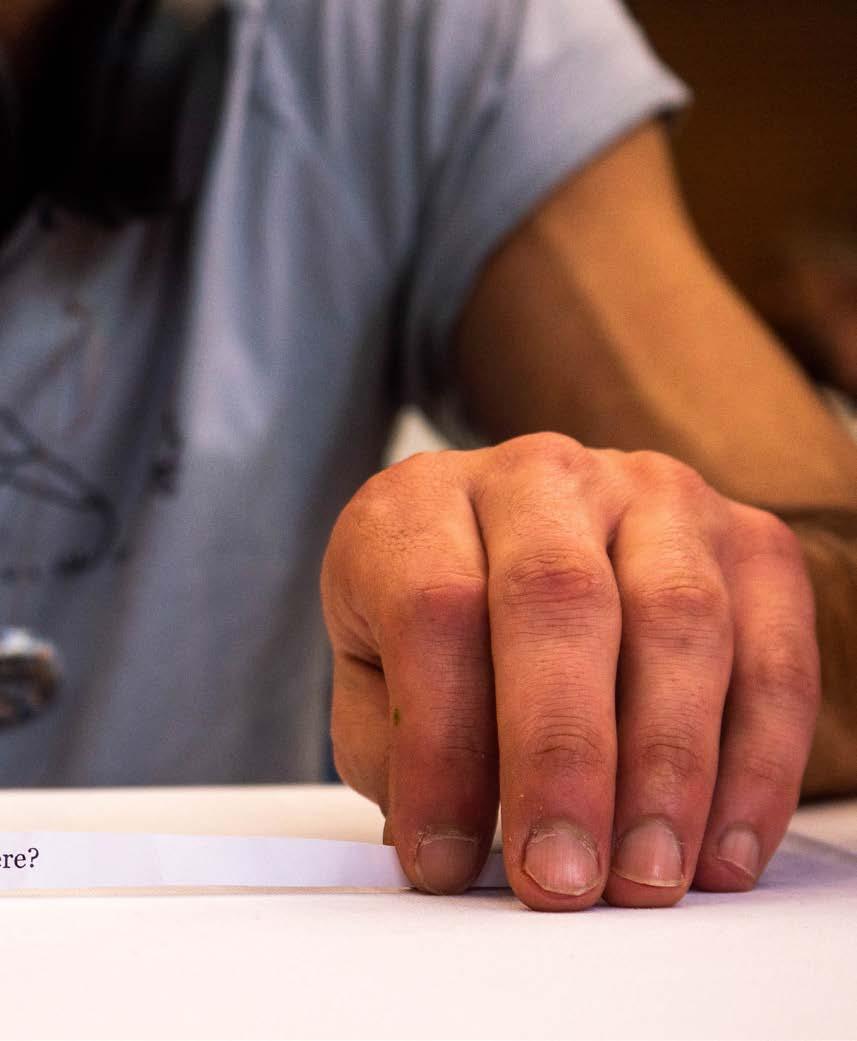

 Nays, France, surrounded by the first “spanish group”, green floor the big room
Nays, France, surrounded by the first “spanish group”, green floor the big room

 Rooftop, a plant that achieved to grow in this trash bucket
Rooftop, a plant that achieved to grow in this trash bucket



 Elena, Germany, the chinese grocery shop in front of the house, wearing distinctive pyjama
Elena, Germany, the chinese grocery shop in front of the house, wearing distinctive pyjama





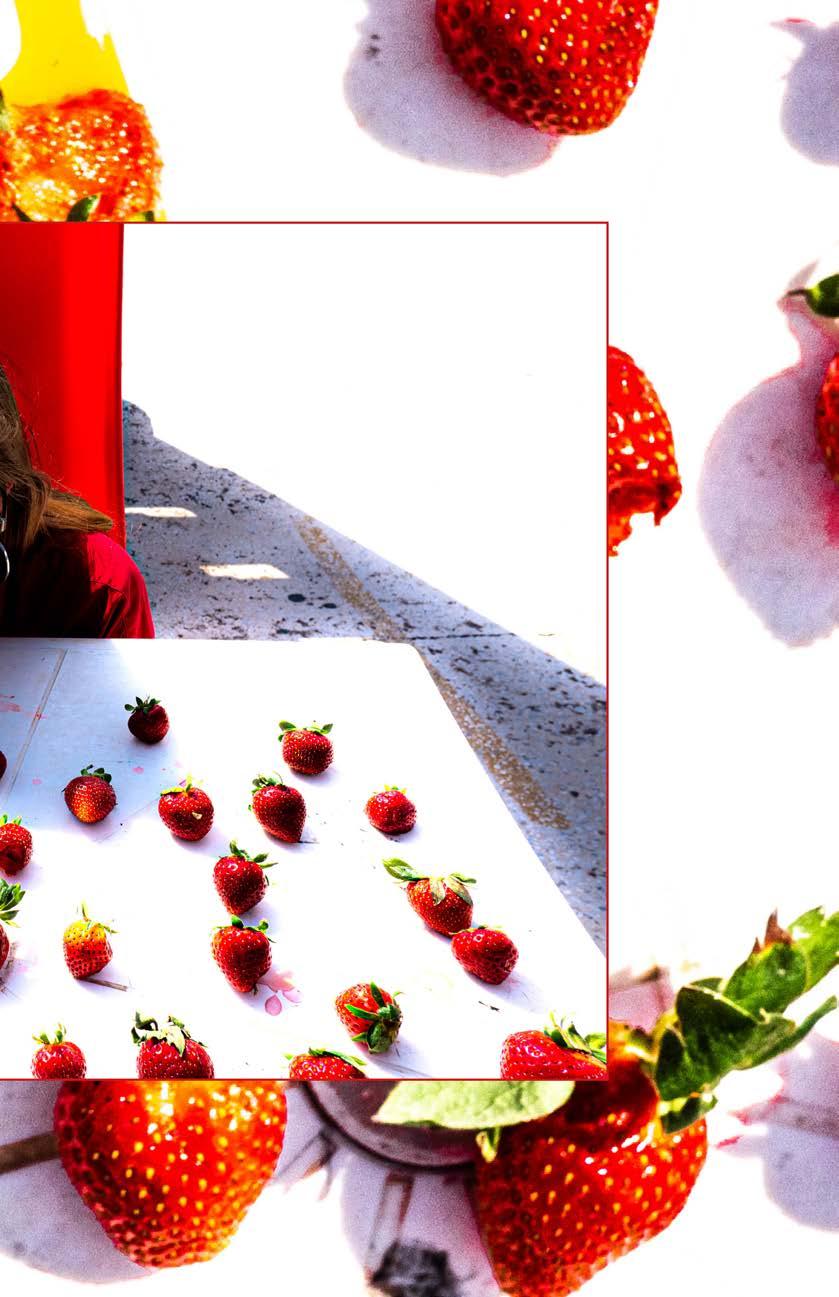



Rodrigo, Spain, Maxime, France, Rooftop, Watering what needs to be watered


 by Amina Settouf
by Amina Settouf

 by Stefanie Thaller
living room
sink & dishes
© Stefanie Thaller
by Stefanie Thaller
living room
sink & dishes
© Stefanie Thaller


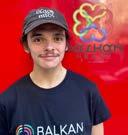
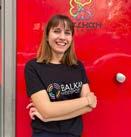

Alex Humbert, 26 years old, France


Elena Leiterer, 19 years old, Germany
Giusy Letizia, 26 years old, Italy

Rodrigo Perezagua Escobar, 29 years old, Spain
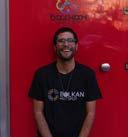
Anthony Veillard, 23 years old, France
Hendrik Rebane, 26 years old, Estonia
Ezgi Güngördü, 24 years old, Turkey


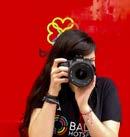
Stefanie Thaller, 22 years old, Austria
Maxime Ricaud, 20 years old, France

General Directors:
Aristodimos Paraschou
Christian Cibba
Graphic Designer:
Anna-Maria Diamantidou
Find us: www.balkanhotspot.org
Usb_ngo.gr

Editors: Giusy Letizia
Stefanie Thaller
Rodrigo Perezagua Escobar
The volunteers responsible for this publication are hosted in Greece in the framework of the European Solidarity Corps. This project has been funded with support from the European Commission. This publication [communication] reflects the views only of the authors, and the Commission can not be held responsible for any use which may be made of the information contained therein.
